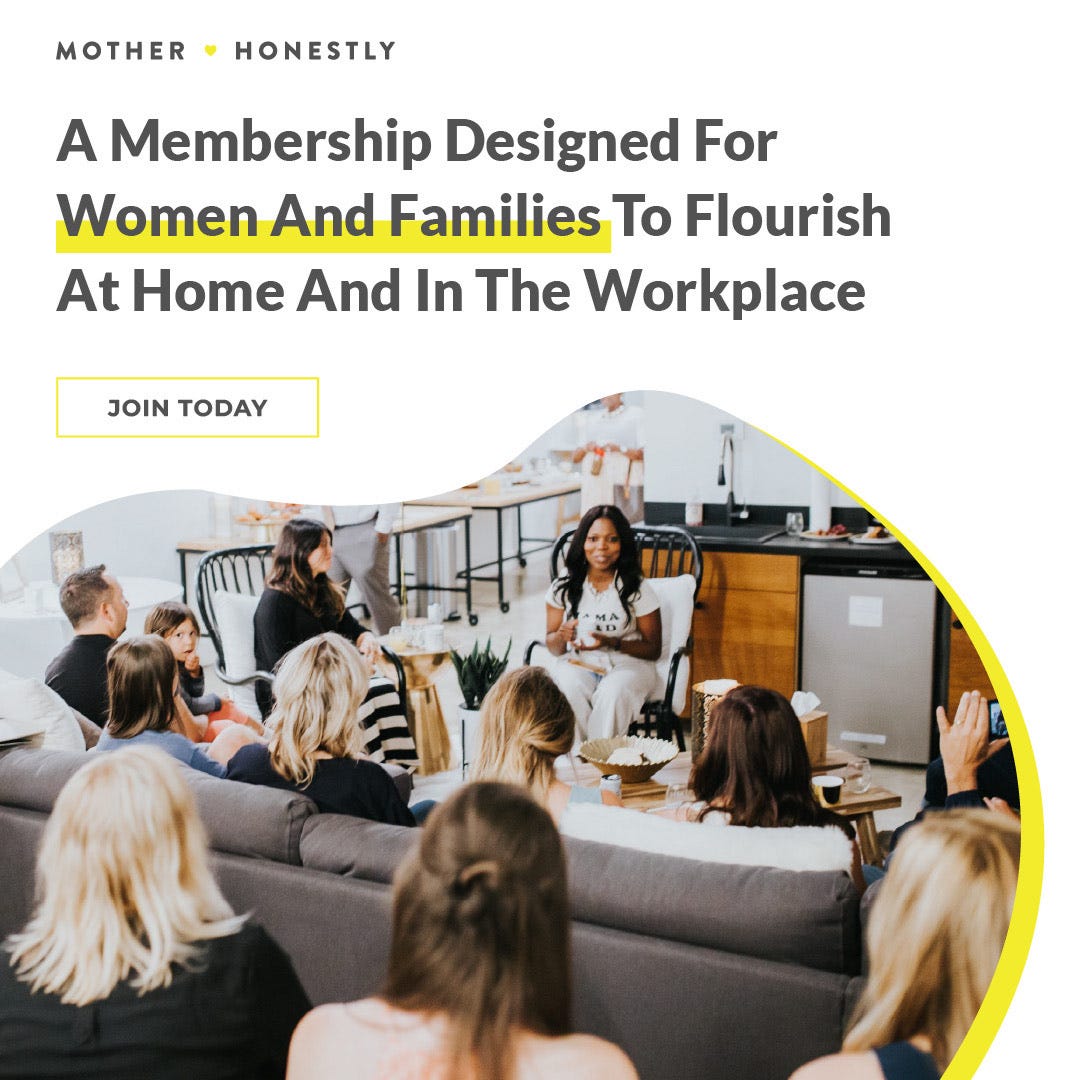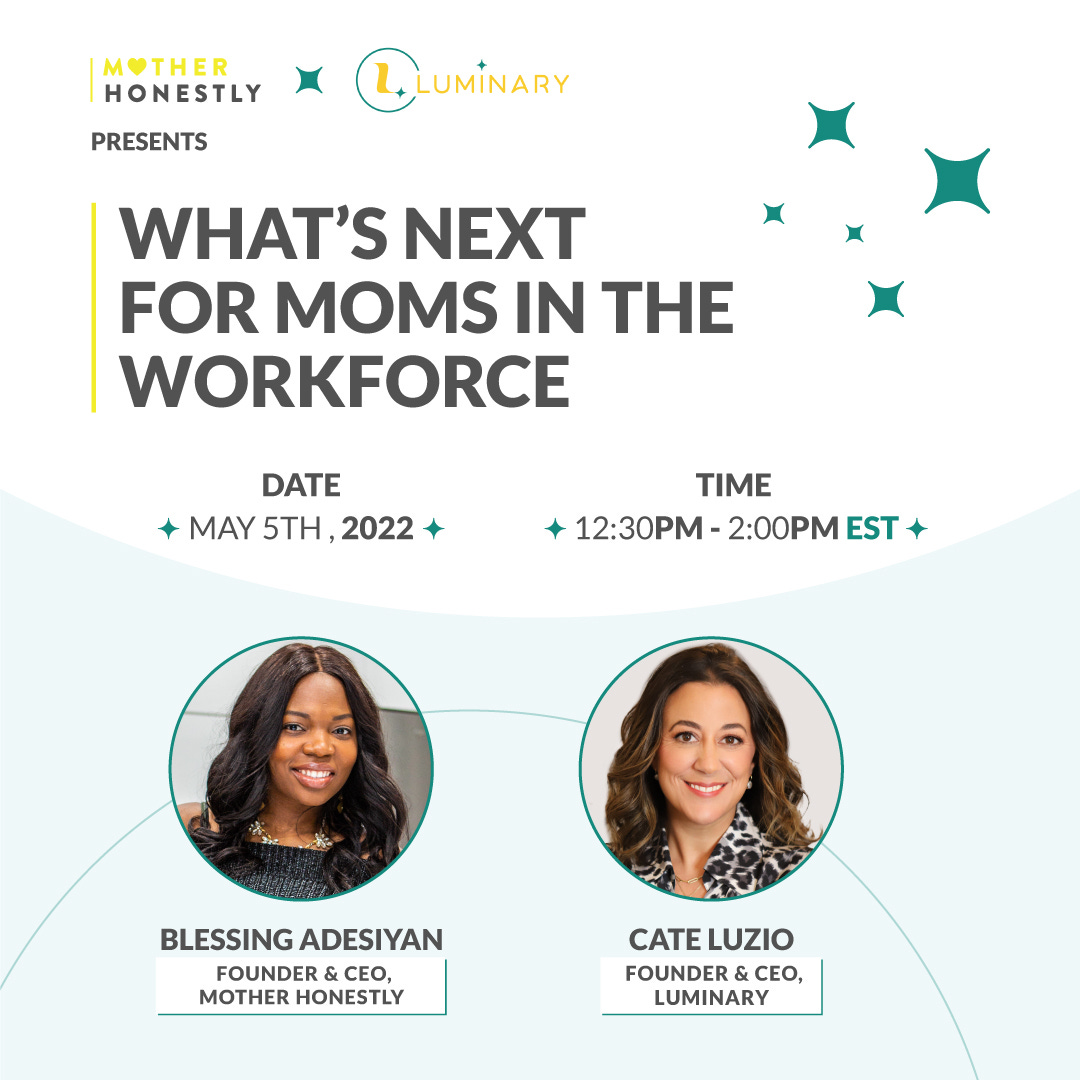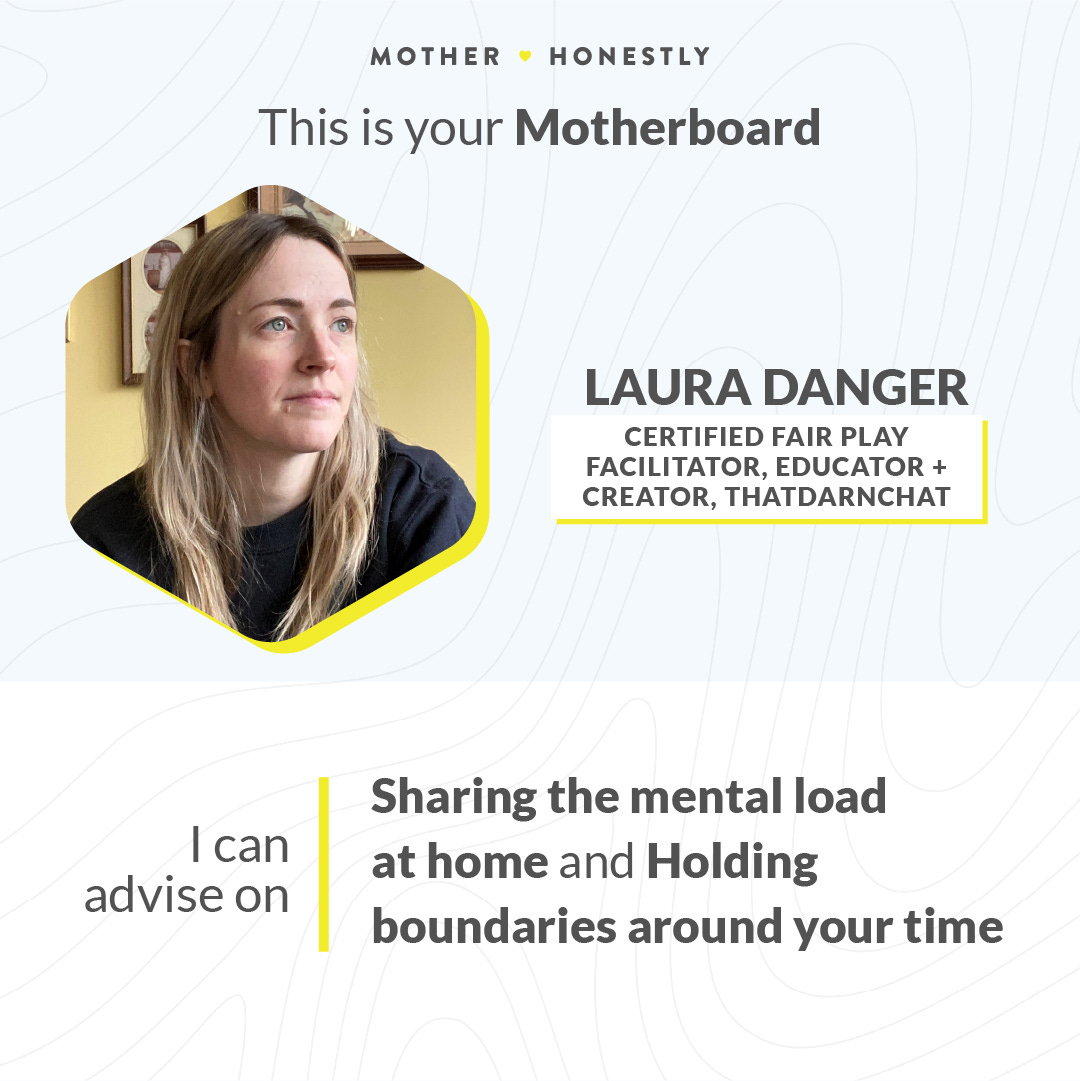It’s Time to Fight for Our Rights as Mothers
Here's how we *really* want to be celebrated this Sunday.
No matter how you feel about the leaked Supreme Court decision to overturn Roe v. Wade—which would ban abortion in nearly half the country—there’s no denying we’re living in an era where American women have it really damn hard.
We’ve put cracks in the glass ceiling, but it hasn’t been shattered. Women in the U.S. still make up just 11 percent of investing partners at VC firms, 15 percent of CEOs at Fortune 500 companies, 19 percent of surgeons, 23 percent of equity partners in law firms and 27 percent of Congress. Essentially, wherever there’s power, we’re woefully underrepresented.
One reason for that is because mothers spend so much time on child care and chores. (One recent analysis found that women actually spend more time on housework after they become the family breadwinner.) And when you spend more hours on unpaid work, you have less time for paid work. Even ambitious women find themselves slipping a rung or two down the career ladder when they can’t keep up with it all.
We might have more time for our careers if we had access to paid family leave or could afford consistent child care, but that’s even becoming increasingly out of reach.
That’s part of the reason why a rollback of our legal rights feels so egregious right now—we already have so little.
And it doesn’t just hurt us—it also impacts our kids. The first five years of a child’s life are crucial for brain development, which is why we need more robust support for parents during that time, says Dr. Dana Suskind, the author of the just-released Parent Nation: Unlocking Every Child’s Potential, Fulfilling Society’s Promise. Suskind is a pediatric surgeon, social scientist, and the bestselling author of Thirty Million Words, which provided a road map to help parents boost their kids’ early brain development. Her prescription: parents need each other. That is, we need to band together to demand policies—like paid leave, affordable childcare, a child tax credit and living wages—that would benefit parents, and therefore our kids. I chatted with her to find out exactly how she thinks we can make that happen.
Our suggestion? Forward this to a friend, and tell them this is what working moms really want for Mother’s Day:
In the book, you point out that in the mid-twentieth century, Americans over 65 years of age were the poorest, most underserved segment of the U.S. population. Then the AARP came along. What do you think is holding parents back from having our own AARP?
Even though there is much that unites parents—sleepless nights and overpowering love, the desire to be home with a newborn, the stress of finding a babysitter we trust, the worry over hitting milestones, and the wonder at new accomplishments—we have not yet forged a sense of collective identity.
I think this has a lot to do with the mythic idea of American individualism. The notion that Americans have to be tough and independent prevails, and it perpetuates going it alone as a virtuous ideal. The result has been to convince parents that they should be able to shoulder the enormous responsibility of early childhood care, development, and education on their own without formal support. And that if they struggled to do so, the failure was theirs alone.
It's that belief, in part, that keeps parents from galvanizing and speaking with a collective voice.
I think that may be starting to change though. Parents are looking around and noticing they are not alone. They are realizing that when parents repeat the same stories of struggle across the country, the problem is not personal, it is systemic. And systemic problems require systemic solutions.
I know there are so many things that would help, but what do you think is the single most effective thing we could do to boost brain development in children under 5?
I love this question! The vast majority of brain development—close to 90 percent—happens within the first 5 years of children’s lives and is highly dependent on their exposure to nurturing interactions with loving adults. But we don’t do nearly enough to pass that science along to parents—the people in the best position to put it to use. Nor do we share it with society more broadly, so that parents and caregivers might receive the respect, recognition and support they deserve. After all, they are building the brains of our next generation!
Science also shows us that environments matter tremendously. Stable, calm environments foster social-emotional skills and executive function, while disruptive environments impede them. So even though it may sound counterintuitive, the single most effective thing we can do to boost brain development in young children is offer parents more support. This support should come in the form of fair wages, paid time off and a social safety net, which will allow parents and other caregivers to provide secure environments for their young children.
Looking at the failure of Build Back Better, it's hard to be optimistic. What do you think it's going to take to make things like paid family leave and affordable childcare a reality?
Part of the reason we’re stuck with policies and norms that work against families, I believe, is that elected officials don’t feel accountable to parents. I would love to see parents galvanize—across income brackets, across political lines, across demographics, in spite of all the usual labels that are used to pit us against one another—and form a parents’ lobby.
I know that in today’s deeply divided climate, that sounds like a tall order. But I believe it’s possible, in part, because it’s been done before! The AARP succeeded in uniting a group of formerly isolated individuals, bringing them together to achieve important, lasting change. A parents’ lobby has the potential to dramatically improve life for millions of families with young children, just as the AARP once did for seniors. The AARP’s playbook would suggest that a parents’ lobby focus on a couple of non-negotiable policy priorities, such as paid family leave, which is supported by 84 percent of all voters.
We have the scientific evidence, the economic case, and the general consensus that parents in America need more societal support. What we lack is the political will. My hope is to galvanize parents and their allies to speak with a collective voice and push our policymakers, our workplaces, our communities to find that will.
BECOME A MEMBER
Our digital membership helps you flourish at home and in the workplace with:
Access to toolkits, worksheets, resources to manage your household and career.
Monthly Motherhood Conversations with women in the workforce in similar life-stages. Coming up on April 21st!
Curated digital events to support your journey personally and professionally.
100+ hours of video content on childcare, household management, outsourcing, managing burnout, and more.
JOIN US
Join us May 5th at 12:30 p.m. to talk about what’s next for women who want to flourish at home and at work.
BOOK A 1-ON-1 CONSULTATION:
Get coaching, feedback, advice, and mentorship from the nation’s top leaders in parenting, work and life, including Laura Danger. Laura is a Certified Life Coach, Licensed Educator, Community Advocate and Certified Fair Play Facilitator who has been facilitating, coaching and community organizing in Chicago for over 12 years. Laura can help you navigate holding boundaries around your time and getting involved in mutual aid and community advocacy work. Book Laura today!
LOVE TO SEE IT
San Francisco will bump pay for child care workers by thousands. The city is investing $60 million annually into early education programs. Educators in tax funded early childhood centers will receive between $8,000 and $30,000 raises, beginning this July.
HATE TO SEE IT
The formula shortage is getting worse. Driven by pandemic-induced supply chain issues and product recalls, formula is getting harder to find and more expensive. In April, 31% of formula inventory was out of stock nationally. Walgreens, CVS Health and some retail chains have starting restricting how much formula consumers can purchase at one time.







